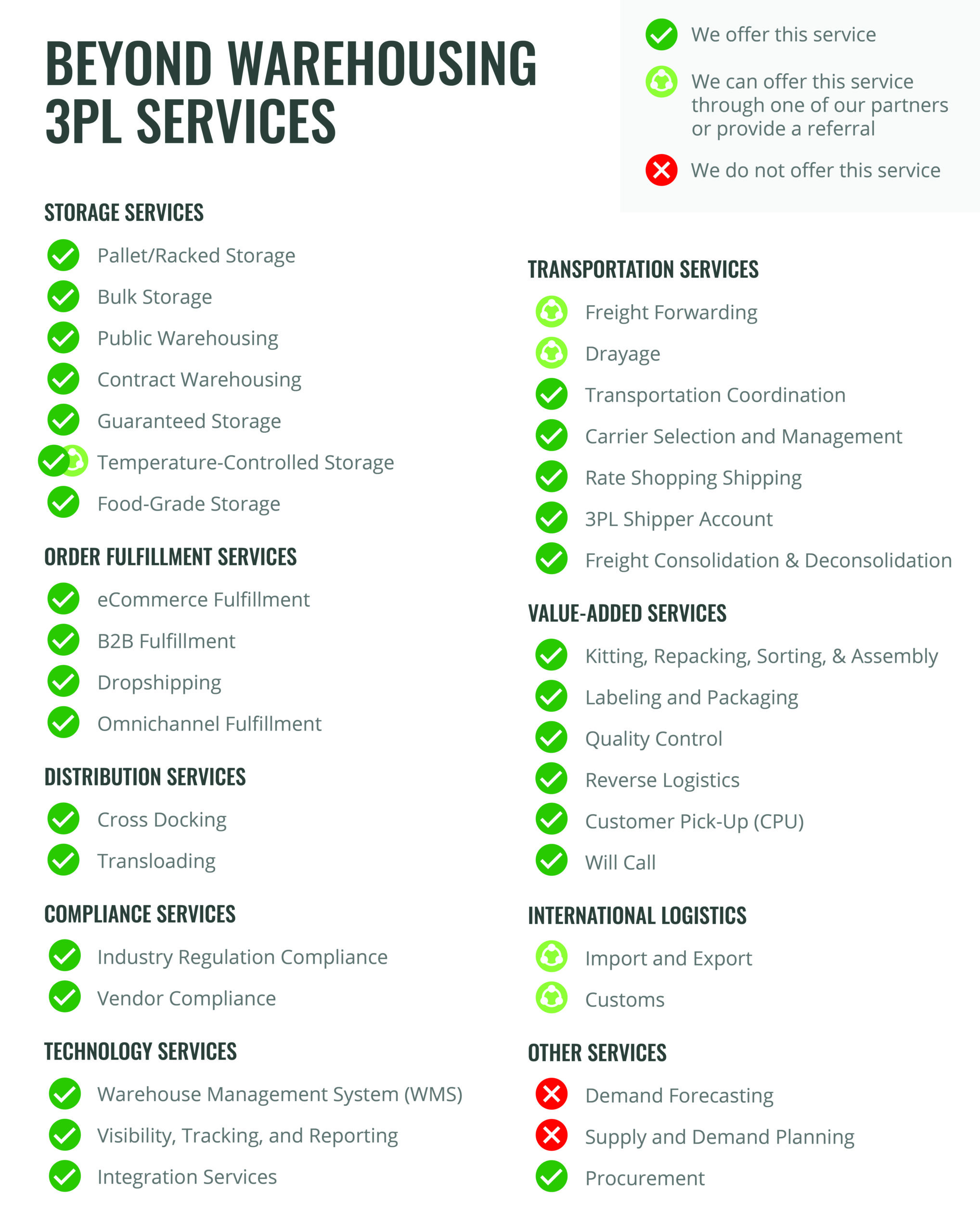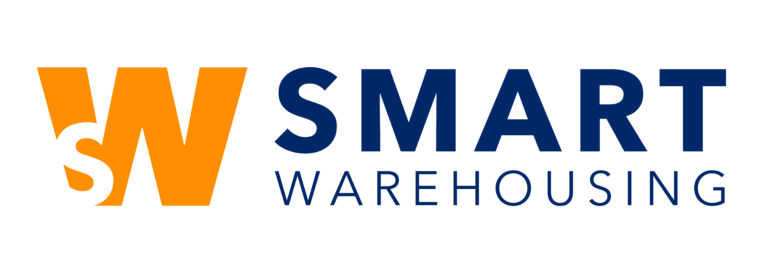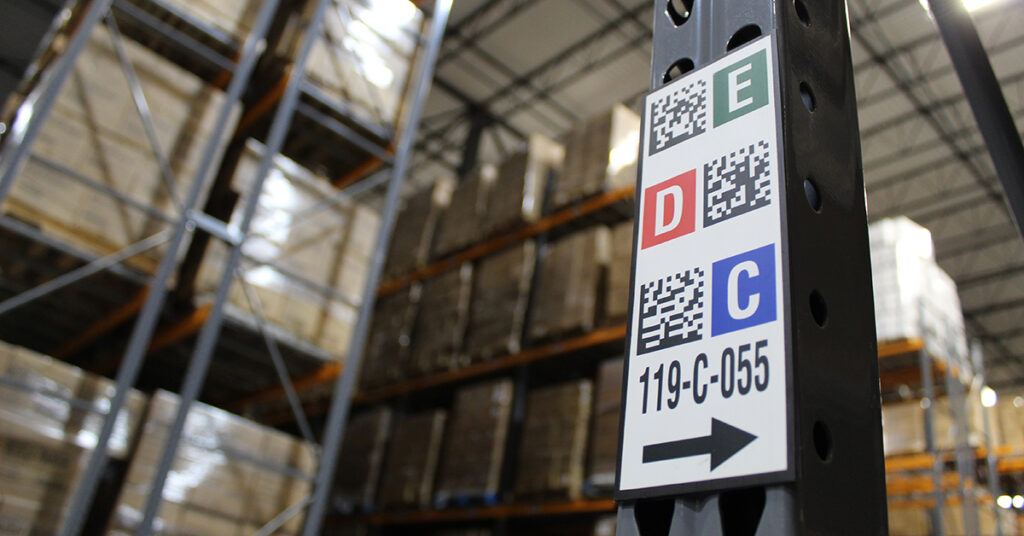Projected to hit $1.31 trillion by 2024, the growth of the global third-party logistics (3PL) market reflects a significant shift in how businesses handle warehousing and fulfillment complexities. Navigating the modern supply chain landscape requires a strategic approach, and for many businesses, this involves the use of 3PL warehouse services.
3PL providers offer a comprehensive array of services designed to enhance operational efficiency and drive business success. From storage and order fulfillment to transportation and technology integration, 3PL providers serve as invaluable partners, allowing businesses to concentrate on their core competencies.
Types of 3PL Warehouse Services
Pallet/Racked Storage
: Racked storage is ideal for products that can be palletized and easily accessed by forklifts or other material handling equipment. It enables efficient inventory management, easy accessibility to goods, and facilitates the optimization of warehouse space by stacking items vertically.Bulk Storage
: Bulk storage is characterized by using open areas or floor space within the warehouse, allowing for the storage of oversized pallets, equipment, machinery, or items that don’t lend themselves well to traditional palletized storage. It offers flexibility in handling a diverse range of products and can accommodate irregularly shaped items or those requiring specific storage conditions.Public Warehousing
: Public warehousing is a shared solution where multiple businesses utilize a common warehouse space. This can be particularly beneficial for businesses with variable storage needs, those looking to minimize fixed costs, or those testing new markets. It provides a scalable and cost-effective solution for companies seeking efficient storage and distribution services without the commitment and investment associated with maintaining a private warehouse.Contract Warehousing
: Contract warehousing offers businesses a customized and dedicated storage solution, providing greater control over inventory management, distribution processes, and overall supply chain efficiency. This model is suitable for companies with stable or predictable storage and distribution requirements seeking a more personalized and long-term logistics solution.Guaranteed Storage
: Guaranteed storage space provides clients with a dedicated amount of space within the 3PL provider’s warehouse facilities. This service ensures that the client has a guaranteed and reserved portion of the warehouse capacity, regardless of fluctuations in overall warehouse utilization. With guaranteed space, the client can rely on a consistent and predictable amount of storage capacity. This is particularly beneficial for businesses with stable or predictable inventory levels.Temperature-Controlled Storage
: Industries such as pharmaceuticals, food, and electronics often require precise temperature control. Temperature-controlled storage within 3PL warehouses ensures that products are stored in optimal conditions, preserving their integrity and quality. There are several types of temperature-controlled storage, including ambient, air-conditioned, refrigerated, and frozen. Climate-controlled warehouses will also maintain a specific humidity level.Food-Grade Storage
: There are many laws and regulations surrounding the storage and distribution of food products to ensure food safety and quality. Food-grade storage services play a significant role in meeting these laws and regulations. Warehouses that have been certified as food-grade have undergone intense audits by a certification body, such as AIB, ensuring compliance with regulations like Current Good Manufacturing Practices (CGMPs) and Hazard Analysis and Critical Control Points (HACCP).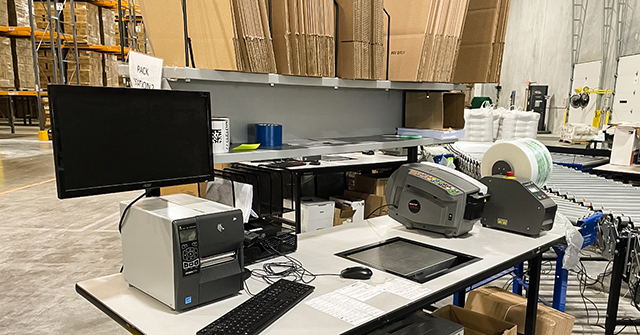
eCommerce Fulfillment
: 3PL providers handle the processing, picking, packing, and shipping of direct-to-consumer orders, enabling businesses to meet the demands of the digital marketplace efficiently.B2B Fulfillment
: B2B fulfillment ensures accurate and timely delivery of bulk orders. This service is designed to meet the specific needs and requirements of companies shipping to other businesses, such as retailers or manufacturing plants.Dropshipping
: Dropshipping is a fulfillment method in which the retailer doesn’t own the inventory of a product sold through their online store. Instead, when a consumer purchases the product online, it is then purchased from the supplier, who is responsible for shipping it directly to the consumer. While suppliers are experts in the design, development, and marketing of their products, they often lack the expertise and/or interest in the logistics of their products. With dropshipping fulfillment becoming more and more appealing to retailers, many suppliers have partnered with 3PLs to handle the warehousing and fulfillment piece of their business.Omnichannel Fulfillment
: Omnichannel fulfillment involves seamlessly integrating inventory management, order processing, and shipping across various sales channels, from e-commerce platforms to brick-and-mortar stores. This ensures real-time visibility into stock levels, centralized control over orders, and the flexibility to offer customers diverse shipping options. By optimizing the fulfillment process and providing data-driven insights, businesses can enhance the overall customer experience and adapt to dynamic market demands.Cross Docking
: Cross docking involves the direct transfer of goods from inbound to outbound transportation, minimizing the time products spend in the warehouse. This swift movement reduces storage and handling costs and accelerates the delivery process.Transloading
: Transloading services are used when goods need to change from one mode of transportation to another and/or when a load needs to be reworked in some way. Transloading can be used for various situations, including unloading a shipping container and reloading the contents into a truck or when pallets shift during transport and need to be rebuilt to be accepted at their final destination.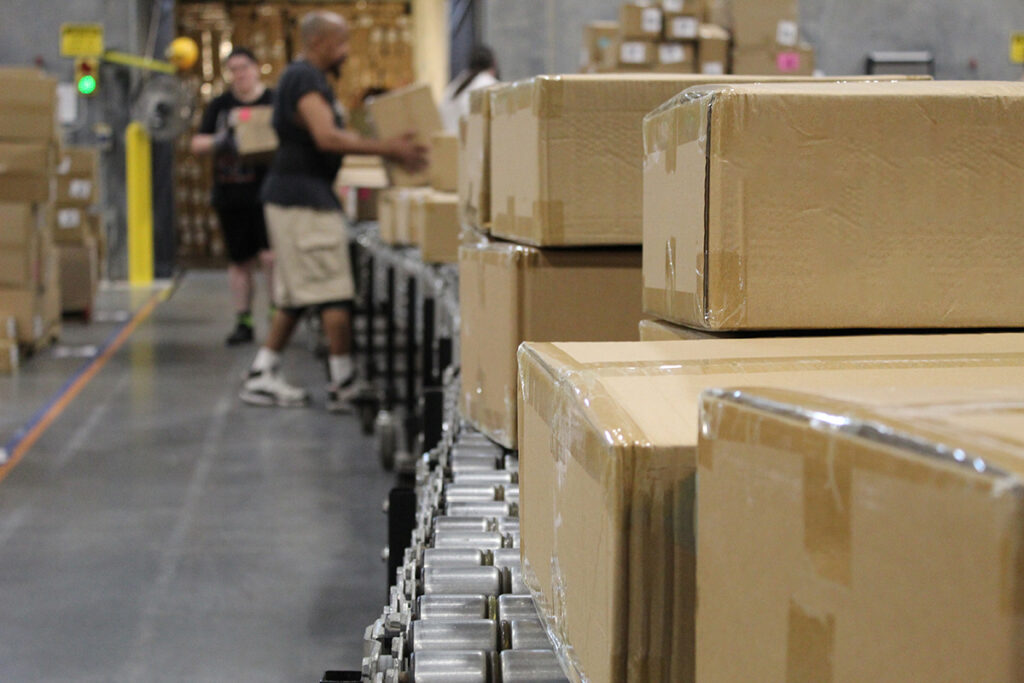
Compliance Services
Industry Regulation Compliance
: 3PL warehouse services help ensure that the storage, handling, and distribution of goods adhere to specific standards and regulations set by relevant authorities or industry bodies. These regulations are often industry-specific and designed to address concerns such as product safety, quality, and integrity. Compliance services may include adherence to Good Manufacturing Practices (GMP), Hazard Analysis and Critical Control Points (HACCP), and other industry-specific standards to guarantee the safety and integrity of stored goods.Vendor Compliance
: These services are designed to ensure that products, shipments, and business practices align with the specific guidelines and expectations of the retail industry. Compliance requirements can cover various aspects, including packaging, labeling, shipping, and product quality. By complying with these standards, vendors enhance their ability to seamlessly integrate with retail supply chains, maintain positive relationships with retailers, and meet consumer expectations. Retail compliance services are critical for fostering efficient and collaborative relationships between vendors and retailers in the competitive retail landscape.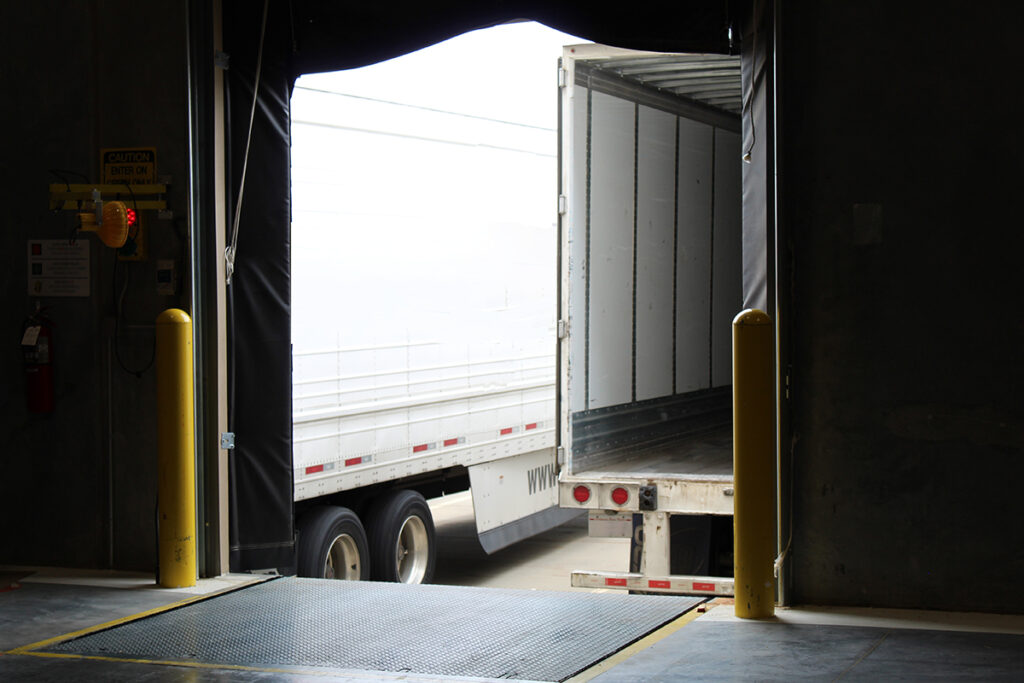
Transportation Services
Freight Forwarding
: Freight forwarders serve as intermediaries between businesses and the complex logistics involved in moving cargo across domestic and international borders. Their responsibilities typically include arranging transportation, handling documentation, securing cargo insurance, and managing customs clearance. Freight forwarding services aim to ensure the smooth and efficient movement of goods, navigating regulatory requirements and logistical challenges to meet the specific needs of shippers and consignees.Drayage
: Drayage services refer to the short-distance transportation of goods, often between ports, rail yards, terminals, or other freight hubs. Within the scope of 3PL warehousing, drayage typically involves the transportation of shipping containers from ports or intermodal facilities to nearby destinations, such as warehouses, distribution centers, or rail yards. Drayage services are time-sensitive, requiring precise coordination to meet tight schedules, especially in intermodal transportation scenarios.Transportation Coordination
: Transportation coordination services involve the planning and management of transportation activities to ensure the efficient movement of goods from one point to another. This encompasses coordinating various aspects of the transportation process, including scheduling shipments, optimizing routes, and selecting appropriate carriers.Carrier Selection and Management
: Carrier selection services include evaluating various factors such as the carrier’s reliability, capacity, geographic coverage, transit times, and cost-effectiveness. Additionally, 3PL providers consider the specific requirements of each shipment, such as the nature of the goods, delivery deadlines, and any special handling needs.Rate Shopping Shipping
: 3PL warehouses often utilize rate shopping shipping software. The software sources the best rate across all major carriers for a given shipment and applies the most cost-effective. With the multitude of clients served by a 3PL, they are typically able to negotiate better rates from carriers based on the combined volumes.3PL Shipper Account
: This service refers to the use of a 3PL’s shipper account (UPS, FedEx, etc.) for a client’s parcel shipments. By leveraging their network and overall shipping volume, 3PLs can often secure more favorable parcel rates than individual businesses might achieve on their own.Freight Consolidation and Deconsolidation
: Freight consolidation involves combining multiple smaller shipments into a single, larger shipment to reduce transportation costs. Conversely, deconsolidation involves breaking down larger shipments into smaller ones for final delivery. These services optimize transportation efficiency and minimize costs.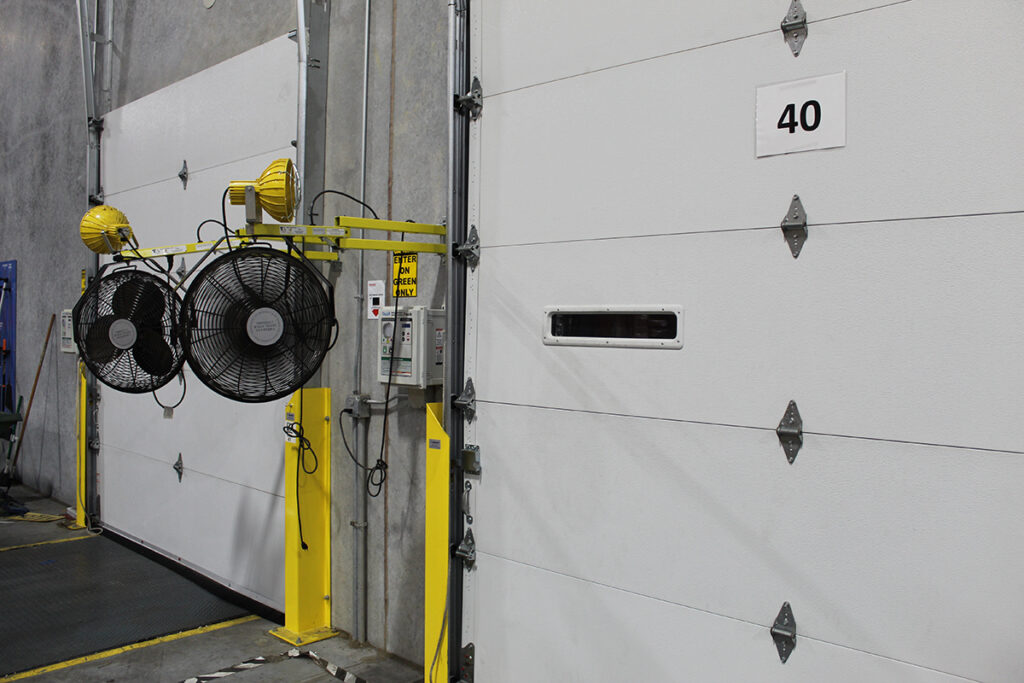
Value-Added Services
Kitting and Assembly
: To meet specific customer requirements, 3PL providers offer customized high-touch services, including kitting, repacking, sorting, and assembly.Labeling and Packaging
: Accurate labeling and effective packaging are essential for efficient warehouse operations and safe transportation. 3PL providers handle labeling and packaging requirements to ensure products reach their destination in optimal condition.Quality Control
: 3PL warehouses implement rigorous quality control measures, including inspections and testing, to identify and address issues before products reach the end customer.Reverse Logistics
: This service typically involves the systematic management of return authorizations, inspecting and sorting returned items, repackaging products for resale, and disposal or recycling of items.Customer Pick-Up (CPU)
: Customer pick-up refers to a logistics arrangement in which the end customer (most commonly a retailer) is responsible for the transportation of their ordered goods from the 3PL warehouse. Some end customers prefer this option to control their transportation costs and/or expedite the shipping process. The availability and terms of customer pick-up services may vary among different 3PL providers.Will Call
: While often used interchangeably with customer pick-up, will call refers to a specific service option where end customers can pick up their ordered goods directly from the 3PL warehouse. This arrangement is commonly used by 3PL clients who want to offer their customers the convenience of collecting items in person, bypassing the traditional shipping process.International Logistics Services
Import and Export
: For businesses engaged in international trade, 3PL providers assist with the complexities of importing and exporting goods. This includes managing documentation, customs clearance, and compliance with international trade regulations.Customs
: These services involve the facilitation and management of the customs clearance process for goods crossing international borders. The 3PL provider ensures compliance with customs regulations and laws of the importing and exporting countries. Key aspects of these services include the preparation and submission of required documentation, coordination with customs authorities, tariff classification, valuation of goods, and adherence to specific trade agreements or restrictions. By expertly navigating customs procedures, 3PL providers help businesses avoid delays, fines, and other issues associated with international trade.Technology Services
Warehouse Management System (WMS)
: A robust WMS is the backbone of efficient warehouse operations. 3PL providers leverage advanced WMS technology to manage inventory, orders, and workflows, optimizing the overall efficiency of warehouse operations.Visibility, Tracking, and Reporting
: Real-time visibility into inventory and shipment status is crucial for decision-making. 3PL providers use advanced tracking systems to provide clients with up-to-date information on their supply chain, along with comprehensive reporting for performance analysis.Integration Services
: To enhance overall supply chain visibility and efficiency, 3PL providers integrate their systems with those of their clients. This integration facilitates seamless communication between different platforms, reducing manual data entry and improving accuracy.
Other Services
Demand Forecasting
: Demand forecasting services involve the systematic analysis and prediction of future demand for a business’s products or services. This process is essential for effective supply chain management, allowing businesses to align their production, inventory, and distribution strategies with anticipated market needs.Supply and Demand Planning
: Supply and demand planning services involve forecasting market demand, optimizing inventory levels, and aligning supply chain activities. Through data analysis, collaboration with clients, and utilization of advanced analytics tools, these services enable businesses to predict future demand accurately and plan production and distribution accordingly. The process includes inventory optimization to prevent stockouts, supplier collaboration for a steady flow of materials, and real-time adjustments to dynamic market conditions.Procurement
: Procurement services include the strategic sourcing and acquisition of materials, components, or supplies required for a client’s operational needs. These services aim to optimize the procurement process, ensuring timely and cost-effective access to required materials like custom packaging and pallets. 3PLs typically have relationships with reputable suppliers and can typically negotiate better pricing.Benefits of Using 3PL Warehouse Services
From cost savings to enhanced focus on core competencies, businesses can gain extensive benefits from a 3PL partnership. Below are just a few of the key benefits.
Cost Savings
: Outsourcing logistics to a 3PL provider often results in significant cost savings. By leveraging the provider’s expertise, infrastructure, and established network, businesses can avoid the hefty investments associated with building and operating their own in-house logistics operation.Scalability
: 3PL providers offer scalability to meet fluctuating demand. Businesses can easily scale their operations up or down without the burden of managing excess space, labor, or equipment during peak seasons or slow periods.Focus on Core Competencies
: Entrusting logistics to a 3PL provider allows businesses to concentrate on their core competencies. By offloading logistics operations, companies can direct their resources and attention toward product development, marketing, and customer satisfaction.Expertise and Industry Knowledge
: 3PL providers bring specialized knowledge and expertise to the table. With a deep understanding of industry best practices, regulations, and the latest technologies, they can navigate challenges efficiently and implement strategies to optimize supply chain performance.Enhanced Customer Service
: Timely and accurate order fulfillment, made possible by 3PL services, contributes to improved customer satisfaction.Continuous Improvement
: 3PL providers are committed to continuous improvement. Regular assessments, data analytics, and performance reviews allow them to identify areas for enhancement, implementing strategies to optimize efficiency and reduce costs over time.What are the Costs for 3PL Warehouse Services?
Determining the costs of 3PL warehouse services is a thorough process tailored to each client’s unique requirements. However, there are two considerable factors in assessing 3PL costs — space and labor. Space costs involve product specifics, storage requirements, and considerations like temperature control. Labor costs are dependent on the complexity of handling.
A comprehensive understanding of the scope of work enables accurate pricing estimates. Limited data may result in assumptions for worst-case scenarios, potentially resulting in higher rates to ensure the 3PL covers costs and maintains a margin.
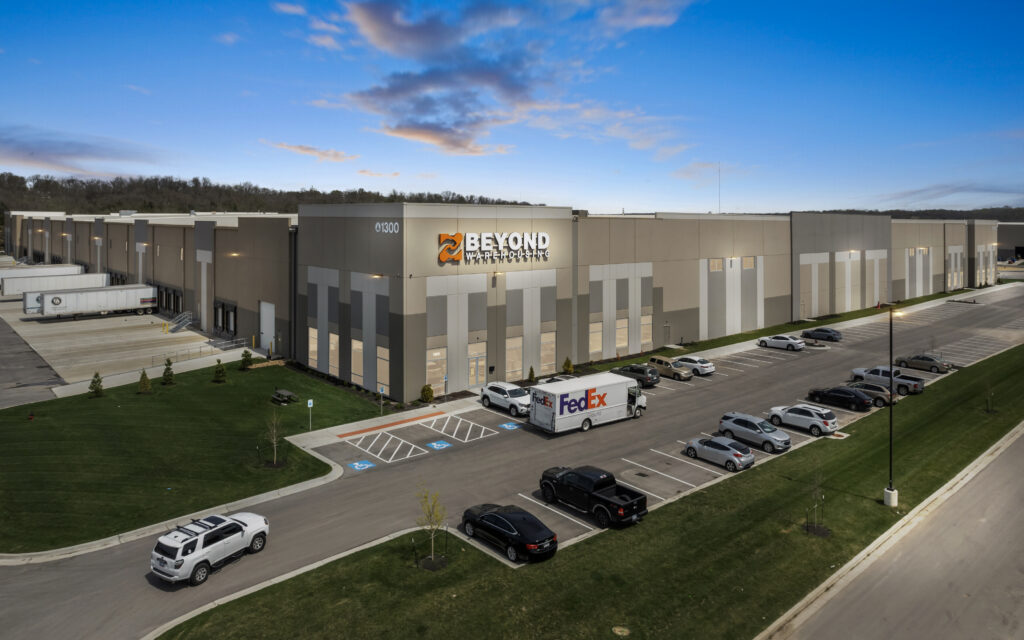
Beyond Warehousing: A Strategic Partner for 3PL Warehousing Services
3PL warehouses offer many customized solutions to cater to diverse business needs. The benefits of a 3PL partnership are compelling, encompassing cost savings, scalability, enhanced focus on core competencies, and continuous improvement. While the costs for these services may vary depending on the scope of work, the value derived from a well-executed 3PL partnership is certain, positioning businesses for success in the ever-evolving landscape of supply chain.
Seeking a partner to maximize the benefits of 3PL warehouse services and enhance your logistics capabilities? Connect with the Beyond Warehousing team!
